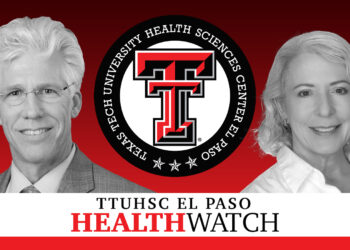A second monoclonal antibody to prevent respiratory syncytial virus (RSV) in infants has been recommended by the CDC’s Advisory Committee on Immunization Practices (ACIP).
Five voting members said no to recommending clesrovimab, a recently approved monoclonal antibody, for prevention of RSV in newborns and infants, based on safety concerns. Clesrovimab joins nirsevimab, a long-acting monoclonal antibody approved in 2023, in the arsenal to help protect infants and children against RSV.
RSV remains a substantial burden among children younger than 5 years of age in the United States, and in the absence of prevention products, approximately 97% of infants develop RSV infections before age 2 years, said Adam MacNeil, PhD, of the CDC’s National Center for Immunization and Respiratory Diseases, in his presentation.
The current strategies for prevention of RSV in children and pregnant women are safe and effective, and the addition of a second option for children should increase access and address issues of supply, said MacNeil.
Clesrovimab was recently approved by the FDA for prevention of RSV in infants younger than 8 months of age who were born during or entering their first RSV season. The ACIP previously recommended nirsevimab for prevention of RSV in this population and in children aged 8-19 months at increased risk of severe RSV disease and entering their second RSV season.
For pregnant women, the CDC and ACIP continue to recommend a single dose of RSV vaccine (ABRYSVO) between 32 and 36 weeks’ gestation.
The development of monoclonal antibody products to prevent RSV in infants is “a spectacular accomplishment,” said ACIP Panelist Cody Meissner, MD, a professor of pediatrics at Dartmouth Geisel School of Medicine, Hanover, New Hampshire, in a comment during the meeting. Providing data from clinical trials to inform recommendations “is something the CDC does very well,” he said.
The majority the public commentators during the first day of the meeting were clinicians who expressed support for the safety and effectiveness of vaccines.
“I have seen what vaccine preventable diseases can do to children,” said Caroline Brown, MD, a pediatrician in private practice in North Carolina, during the public comment. Thanks to vaccines, most children today are spared devastating outcomes, she said. However, Brown noted that she has been fielding calls from panicked parents with the appearance of measles in her area and emphasized that approved vaccines for children, including the measles vaccine, have been extremely well-researched and found to be safe and effective.
Keeping the RSV Prevention Momentum Going
Continued recommendation of the RSV vaccine is important, as the availability of both maternal vaccines and infant monoclonal antibodies for the past two seasons have resulted in reductions in hospitalizations and outpatient RSV visits, said Lori Handy, MD, MSCE, associate director of the Vaccine Education Center at the Children’s Hospital of Philadelphia, Pennsylvania, and assistant professor of clinical pediatrics at the Perelman School of Medicine, in an interview.
“As all infants are at risk of RSV infection, multiple prevention products ensure that all families can access prevention and make informed choices about which prevention is best for their own circumstances,” said Handy. “Continuing to offer safe and effective preventive options in the forms of maternal vaccines and infant monoclonal antibodies will ensure the success of the past two seasons will be enjoyed for newborns to come,” she emphasized.
When it comes to vaccine information, clinicians continue to be the most trusted messengers, Handy told Medscape. Clinicians are in the best positions to have conversations with families and provide a strong recommendation to choose either maternal vaccine or monoclonal antibody for RSV prevention, she said. “Direct patients and families to trusted resources developed by organizations with long-standing commitments to protecting the health of mothers and infants, such as ACOG, the Vaccine Education Center, and the American Academy of Pediatrics,” Handy added.
The AMA Weighs In
In advance of the ACIP meeting, the American Medical Association (AMA) posted an open letter to the American people with its position on respiratory vaccines.
The letter acknowledged concerns in the medical and public health communities about the recent upheaval in ACIP membership and called on physicians to continue to provide “clear, evidence-based guidance” to patients.
“We commit to working together to promote public understanding and confidence in the use of vaccines to avoid another severe respiratory virus season and resurgence of vaccine-preventable illnesses and deaths,” the AMA said in the statement.
COVID-19 Here to Stay
Although no voting related to COVID-19 vaccination occurred, the meeting began with a review of the latest data on COVID-19 epidemiology, followed by safety and efficacy reviews of former and current versions of the vaccine and a summary of the CDC’s current recommendations.
MacNeil noted in a separate presentation that although COVID-19 rates have decreased over the past several years, cumulative rates remain high among adults aged 75 years and older. He also noted that the risk of hospitalization from COVID-19 persists year-round, especially in vulnerable populations.
Handy had no financial conflicts to disclose.
Source link : https://www.medscape.com/viewarticle/acips-new-class-endorses-rsv-talks-covid-2025a1000h7b?src=rss
Author :
Publish date : 2025-06-26 17:00:00
Copyright for syndicated content belongs to the linked Source.








